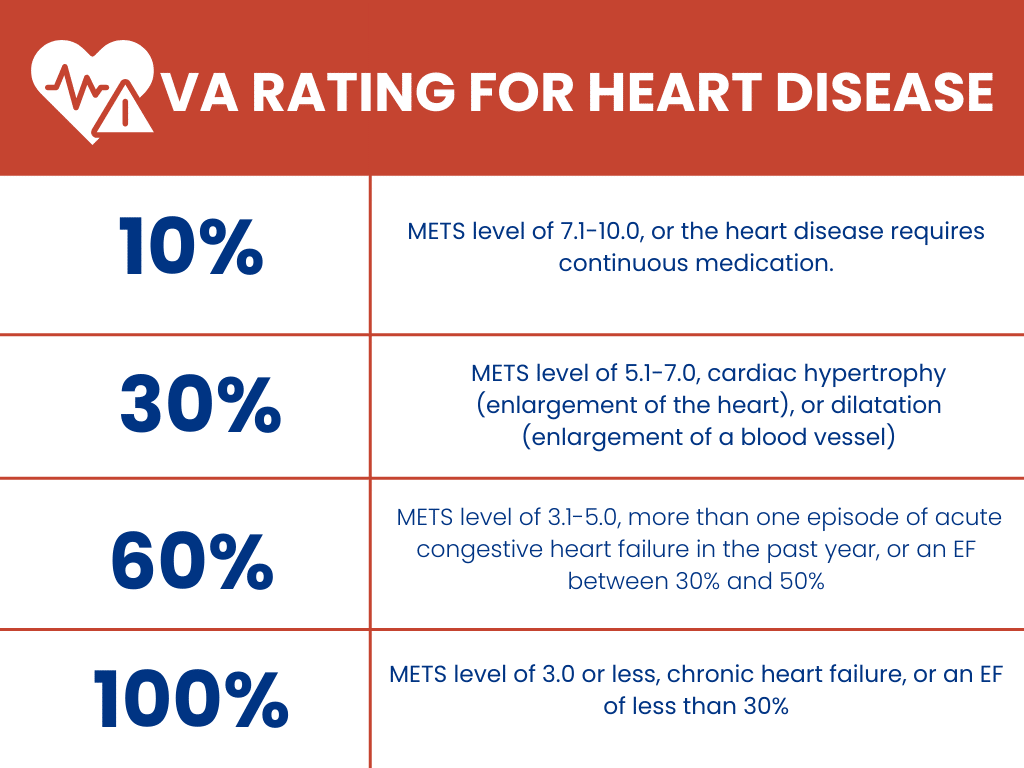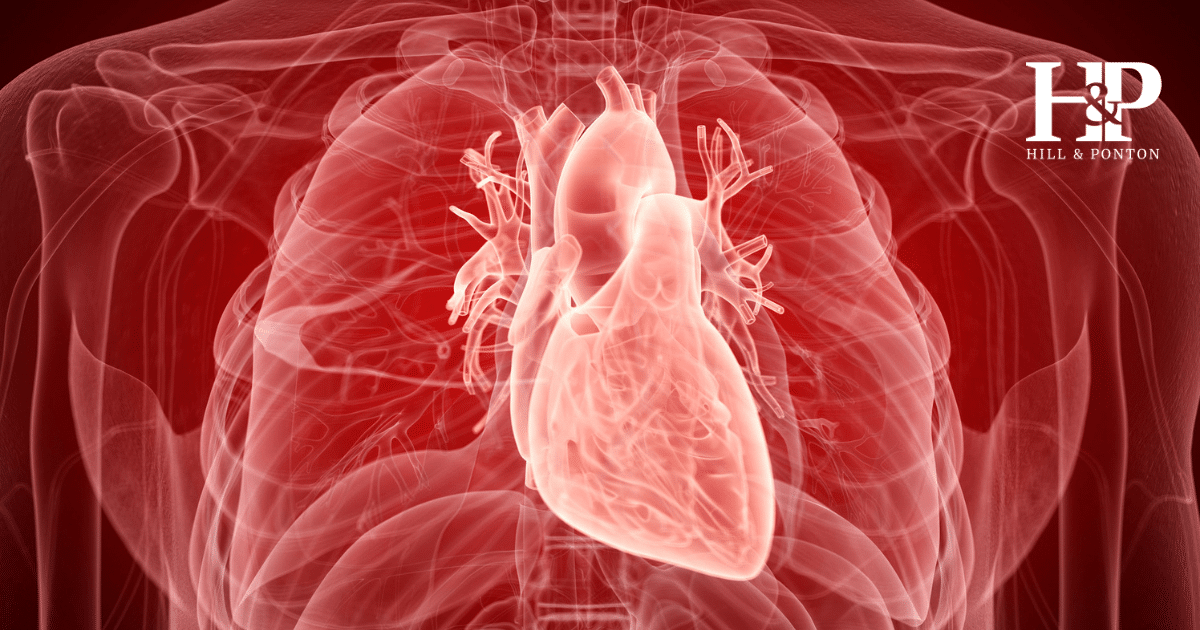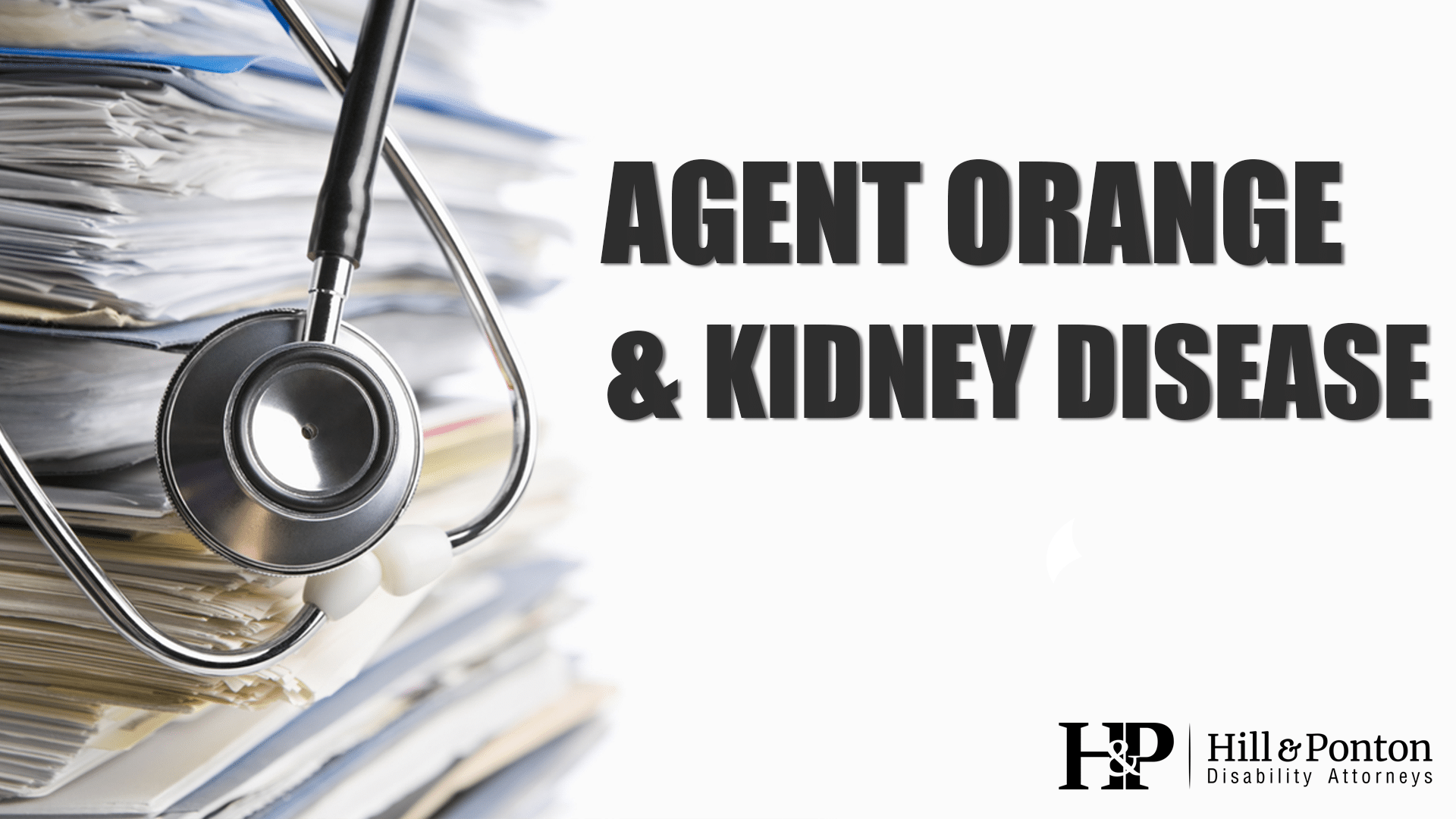Ischemic heart disease, also known as coronary artery disease, is a condition that affects the heart’s blood supply due to narrowed or blocked coronary arteries. Veterans who were exposed to Agent Orange during their service may be at higher risk for developing ischemic heart disease, and the VA recognizes this connection, providing disability compensation for those affected.
What Qualifies as Ischemic Heart Disease?
Ischemic heart disease involves reduced blood flow to the heart muscle, leading to symptoms such as chest pain (angina), heart attacks, and potentially heart failure. This condition can be diagnosed through various tests, including stress tests, angiograms, and blood tests, which reveal the extent of artery blockage and the heart’s overall function.
Find out how the VA defines Ischemic Heart Disease
How the VA Rates Ischemic Heart Disease
The VA rates ischemic heart disease based on the severity of symptoms and their impact on the veteran’s ability to work and perform daily activities. The rating is expressed as a percentage, with higher percentages indicating more severe disability and higher compensation. Ratings are determined through medical evaluations, including the extent of coronary artery blockage and the presence of symptoms like chest pain, shortness of breath, and fatigue.
VA disability ratings for ischemic heart disease range from 10% to 100%, depending on the severity of the condition. For instance, a veteran with mild symptoms controlled by medication might receive a lower rating, while a veteran with severe symptoms, frequent hospitalizations, or a heart attack history might receive a higher rating.

Master the VA Disability Claims Process
The Agent Orange Presumption
The VA presumes that veterans who served in certain locations and time periods and were exposed to Agent Orange are at increased risk of developing ischemic heart disease. This presumption simplifies the process of establishing a service connection, allowing affected veterans to receive benefits without the need for extensive evidence linking their condition directly to their military service.
Average Disability Payment for Agent Orange-Related Ischemic Heart Disease
The disability payments for veterans with Agent Orange-related ischemic heart disease vary based on the severity of their condition. The VA uses a rating system to determine the level of compensation. These payments can significantly impact the veteran’s quality of life, providing essential financial support.
2025 VA Disability Calculator
Quickly calculate your combined VA disability rating and see the compensation you should receive.
Learn MoreUnemployability and Additional Compensation
Veterans whose ischemic heart disease prevents them from maintaining gainful employment may qualify for Total Disability Individual Unemployability (TDIU). TDIU provides compensation at the 100% disability rate, even if the veteran’s rating is less than 100%, ensuring they receive the financial support needed.
Getting Your VA Rating for IHD
Diagnosis and Service Connection
Establishing a service connection for ischemic heart disease involves providing evidence of diagnosis and service records showing exposure to Agent Orange. Veterans should gather medical documentation, including stress tests, angiograms, and doctor’s reports, to support their claim. The VA’s presumption of exposure simplifies this process for eligible veterans.
Conditions Secondary to Ischemic Heart Disease
Ischemic heart disease can also lead to several secondary conditions that significantly impact a veteran’s health. These conditions are often a direct result of the primary heart disease and can qualify for additional compensation if proven to be secondary. Veterans should be aware of these potential complications and seek medical evaluation to support their claims.
Common Secondary Conditions
- Heart failure
- Arrhythmias (irregular heartbeats)
- Peripheral artery disease
- Stroke
- Angina (chest pain)
- Myocardial infarction (heart attack)
- Hypertension (high blood pressure)
- Depression
By documenting these conditions and their connection to ischemic heart disease, veterans can strengthen their case for increased VA benefits.
Get Help With Your VA Disability Claim
Winning a VA Claim: An Example
A veteran who initially received a 30% disability rating for ischemic heart disease successfully appealed for a higher rating of 60%. The veteran argued that his condition warranted a higher rating based on medical evidence showing more severe symptoms.
- Medical Records: The veteran’s medical records, including a January 2013 transthoracic echocardiogram and a February 2013 left ventriculography, showed a left ventricular ejection fraction of 50%. This finding met the criteria for a 60% disability rating under the VA’s rating schedule.
- Private Echocardiogram: A private echocardiogram dated June 3, 2010, indicated left ventricular hypertrophy and mild dilatation of the ascending aorta, justifying an increase in the disability rating.
- DBQ and VA Examination: A June 2013 Disability Benefits Questionnaire (DBQ) and a February 2015 VA examination reported MET levels between 3-5 METs, indicating significant physical limitations consistent with a 60% rating. However, an April 2015 addendum clarified that the METs limitation was largely due to the veteran’s COPD and peripheral vascular disease, not solely ischemic heart disease.
The Board of Veterans’ Appeals granted a 60% disability rating from June 3, 2010, as the evidence supported the severity of the veteran’s condition. This case highlights the importance of detailed medical evidence, including specific diagnostic tests, in securing a higher VA disability rating.




